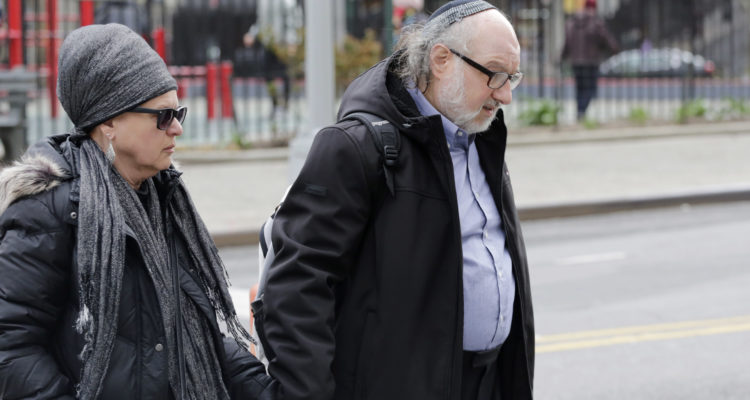The American Jewish spy who sat for 30 years in prison before coming home to Israel tells his story, for the first time, to Israel Hayom.
By Batya Jerenberg, World Israel News
Jonathan Pollard, the American Jew who spent decades in prison for spying for Israel, gave his first in-depth interview to an Israeli paper since arriving in Jerusalem a free man on December 30, 2020.
Over several meetings he held with Israel Hayom reporters in his home in Jerusalem, he spoke about the espionage, his relationship with his Israeli handlers, his imprisonment, and how it feels to be free after 30 years in jail and then another five on a restrictive parole.
Pollard insists that his motives were pure, even though he was paid tens of thousands of dollars for taking the risks he did.
The ex-Navy intelligence analyst said that he recruited himself to send thousands of secret documents to Israel in the early 1980s that he felt the United States should be sharing with one of its closest allies.
“The Americans stabbed Israel in the back and did not pass on the information they were required to pass on according to the agreements,” he said. “It was not only hiding information, but also lies told to Israelis. I attended meetings where these things happened.
“I know I crossed the line, but I had no choice. The threats to Israel were grim and severe. When an Arab country develops chemical weapons of mass destruction and the United States hides it from Israel, every Jew should ask himself what the words ‘never again’ mean.”
When Pollard knew that he was about to be caught in 1985, he and his wife at the time, Ann, made a run to the Israeli embassy in Washington, thinking they would be safe there. He described the difficult moment when Israel officially turned its back on him.
“The security guard told me, ‘I’m sorry, but Jerusalem says you have to leave and then come back through the main gate.’ I told him, ‘I won’t make it to the main gate. Twenty FBI agents are waiting for me outside. You know what they’ll do to me?’ And he answered, ‘I’m sorry, but you have to leave.’”
Ann served three and a half years of a five-year sentence for aiding her husband’s espionage, after which she moved to Israel. After she was released, Jonathan divorced her, saying he did not want to make her wait for him, considering he was given a life sentence. In 1993, he married Esther Zeitz, a Canadian activist in the campaign for his release, given that he was the only American to receive such a harsh sentence for passing classified information to an allied country.
Reflecting on the consequences of his actions, the 66-year-old former spy and his wife said that one of the toughest was their inability to have children.
“It’s one of the biggest tragedies of our lives,” Esther said, “one of the things that have given us the most pain. In Israel, people are used to the idea that the most basic right a person has is to bring children into the world. In the United States it’s exactly the opposite. From the minute you’re convicted, you have no more rights…. We begged the government to give us a chance to have children, in any place, or in any way.”
“If someone tells you that men don’t have the need for children exactly like women do, he’s lying,” Pollard added. “Because children are everything.”
Still, the couple is ecstatic to be in Israel, and free to walk wherever they want.
“It’s hard for me to describe to you the wonder of a walk with [wife] Esther in the street,” Pollard said. “Everything is so wonderful. The sky is blue and beautiful. People speak with us, and from the conversations I feel that they know that someone was willing to risk his life for them.”
The one thing he doesn’t understand in his new life, he says, is the request he constantly gets for a selfie.
“What is this nonsense?” he asks with a big laugh. “When I went into prison, there was no smartphone and no selfie. Both Esther and I are very private people, and privacy is very important to us.”
The full interview with the Pollards will be published in the weekend edition of Israel Hayom.





